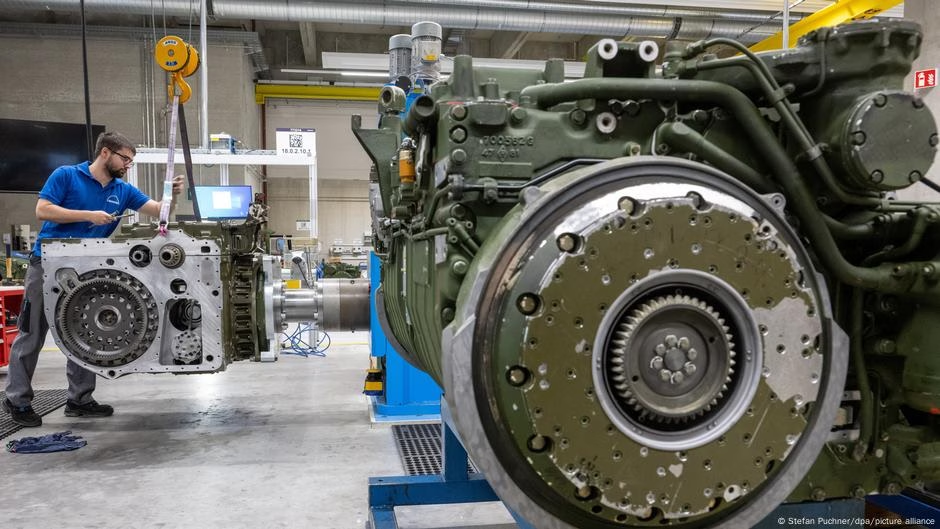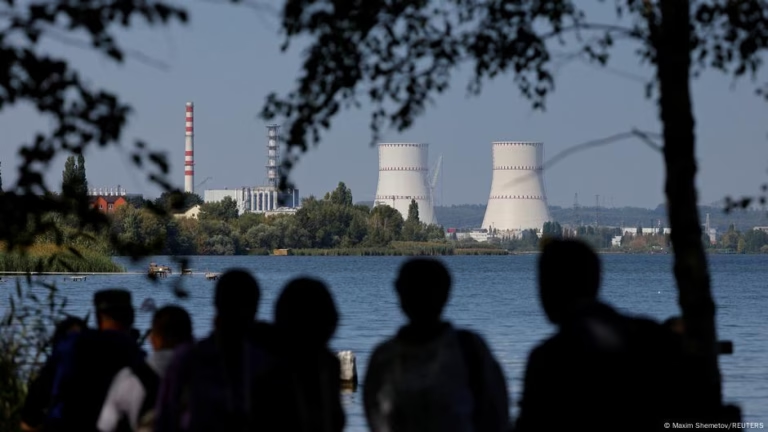The decision by the German parliament to significantly increase defense spending over the coming years could lead to a major overhaul of Germany’s industrial landscape. This could result in job shifts, for instance, from the struggling automotive industry to the arms industry. Companies like Volkswagen are reducing jobs due to declining sales, while manufacturers of military equipment like Rheinmetall and Diehl are facing a severe shortage of workers.
A study on “Economic Effects of European Defense Investments” by consulting firm EY and German lender DekaBank calculated that Europe’s NATO members will spend an estimated €72 billion ($78 billion) annually on bolstering their military defenses. This investment is projected to create or secure 680,000 jobs in Europe. A survey by US consulting firm Kearney’s Germany office also found that jobs in the defense sector could surge across Europe, albeit the exact number of skilled workers needed will depend on how much European NATO states truly increase their defense spending. With a moderate increase in defense spending, around 460,000 positions could remain unfilled in Europe; with a significant increase, that figure could reach 760,000, particularly among specialists in artificial intelligence and big data.
The European defense industry’s growth is expected to particularly benefit countries like France, Germany, Italy, Spain, and Sweden. Germany, the second-largest arms exporter in Europe, is likely to gain the most from European rearmament. Currently, the country’s defense sector employs around 60,000 people, with another 90,000 people working for industry suppliers. Due to the surge in demand for military hardware such as artillery, radar technology, and armored vehicles, manufacturers are not only looking for new employees but also for production sites to handle the influx of new orders. This could lead to the recruitment of workers from German industries that are currently struggling and possibly downsizing.
Oliver Dörre, CEO of Hensoldt, a leading European defense company headquartered in Germany, admits that Hensoldt would benefit from auto industry difficulties. They are in talks with auto suppliers Continental and Bosch about hiring redundant employees. Defense firm KNDS also announced plans to take over a train manufacturing plant in east Germany from Alstom, aiming to retain about half of the 700 Alstom workforce and produce components and modules for Leopard 2 battle tanks as well as Puma and Boxer armored vehicles there.
Switching from a civilian to a defense job isn’t always easy. Qualified assembly line workers or development engineers can transition into the defense sector with some retraining. However, transitions in roles like sales or procurement are more complicated. Adds to these challenges are security clearances for new personnel, which can be a lengthy process, and potential employment hurdles for nationals of countries deemed a significant risk to national security, such as Afghanistan, China, Vietnam, Iraq, Iran, Syria and Russia.
Europe’s rearmament efforts could slow down due to a lack of skilled employees on the continent. However, policies by the US could alter this, with funding cuts for research institutes and universities opening up new opportunities for Europe, potentially making it more attractive to talent worldwide. Digitalization is rapidly changing job profiles and requirements in the defense industry. IT specialists and artificial intelligence (AI) experts are in high demand but short supply. The defense sector will need to revise its recruitment strategy to attract the urgently needed specialists, offering higher salaries and bringing in more women in leadership roles.
Source: https://www.dw.com/en/can-germany-s-auto-industry-workers-pivot-to-defense-jobs/a-72000795?maca=en-rss-en-all-1573-rdf







